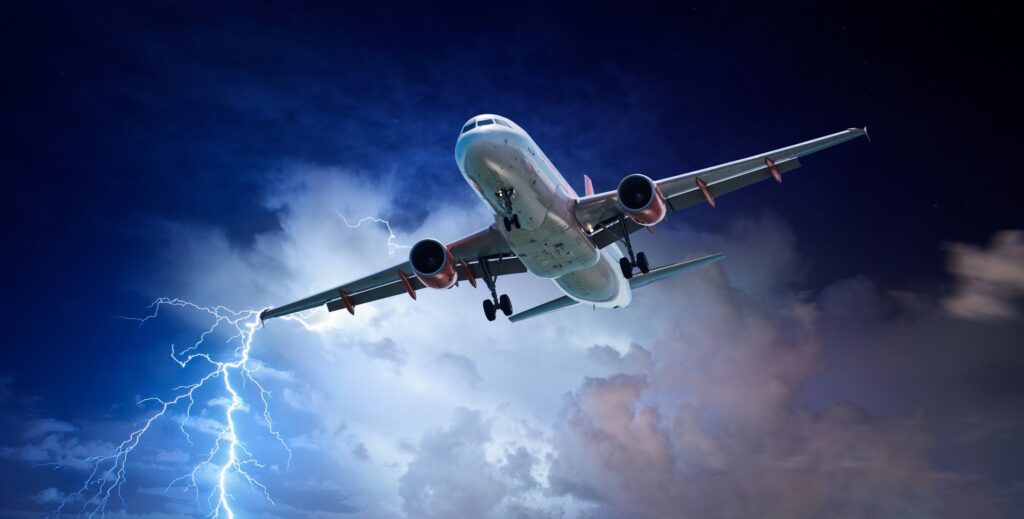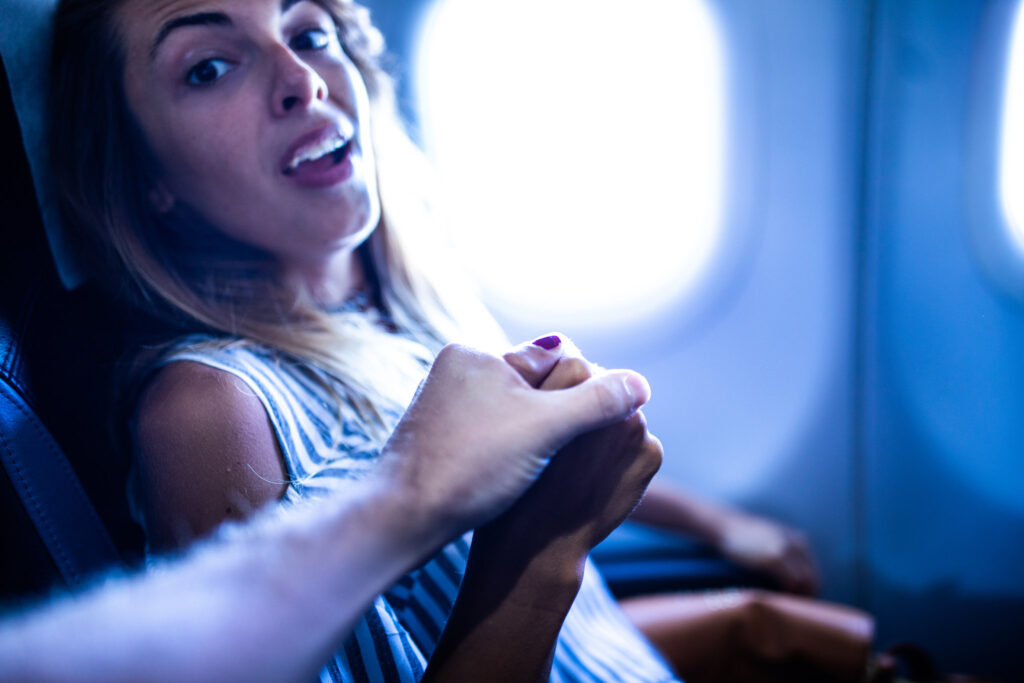Table of Contents
Embarking on your first flight can stir up a mix of excitement and nerves. Many people, especially those nervous about flying, might feel a blend of anticipation and apprehension. But fear not! This guide is here to ease your worries and provide helpful tips for first time flyers. Whether you’re curious about airplane safety or need practical advice for navigating airports, we’ve got you covered.
Related: “Tips for Getting the Cheapest Flight Tickets“
Why Is There No Matter to Be Scared of Flying?
- Airplanes stand out as one of the safest means of travel. They owe to a plethora of factors that jointly bolster their commendable safety track record. Initially, stringent safety protocols and criteria oversee each facet of aircraft conception, assembly, and operation. Generally, aviation authorities globally enforce stringent regulations to assure the structural soundness and dependability of aircraft.
- Furthermore, aircraft undergo thorough maintenance inspections to identify and preemptively address any potential concerns. Generally, aviation companies employ highly adept technicians who diligently scrutinize and uphold every element of an aircraft. Their main task is to check the engines and the avionic systems to diminish the likelihood of mechanical malfunction.
- Moreover, the aviation sector prioritizes pilot education and competence. Pilots participate in extensive training regimes and recurring assessments to refine their proficiencies and decision-making prowess. They are educated enough to adeptly manage a diverse array of scenarios, including exigencies, with accuracy and composure. So, if you’re a first time flyer, you should definitely not be scared of facing badly-educated pilots.
- Additionally, contemporary aircraft are furnished with cutting-edge technology and safety enhancements tailored to mitigate hazards and amplify passenger security. From backup systems to sophisticated navigation apparatus, airplanes are outfitted to manage diverse circumstances and guarantee a secure voyage.
- Lastly, the aviation sector accentuates a safety-centric ethos. They cultivate a cooperative milieu where all individuals, from pilots to ground staff, prioritize safety above all else. Continuous enhancements and insights gleaned from prior incidents contribute to the perpetual refinement of aviation safety.
To encapsulate, the complex of stringent regulations, thorough maintenance procedures, pilot expertise, advanced technology, and a safety-oriented ethos collectively render airplanes one of the safest options for travel.

Unraveling the Superiority of Air Travel Over Other Modes of Transportation
The second section of our first time flyer guide is all about the perks of airplane traveling. In fact, it presents numerous benefits not commonly acknowledged in other transportation alternatives.
- Quickness. Air travel outpaces other modes in terms of swiftness. The reason lies in the fact that aircrafts cover expansive distances in mere fractions of the time it takes for other forms of transport. This swiftness is particularly advantageous for extensive voyages, because it affords voyagers swift and effective passage to their destinations.
- Reach. Secondly, airports are strategically positioned in primary urban centers and regions around the globe. This means that air travel grants effortless access to a diverse array of locales! This extensive network of air hubs ensures the feasibility of air travel even to remote regions typically inaccessible by alternative transportation means.
- Effectiveness. Thrirfly, air travel often surpasses alternative transportation modes in terms of efficiency, particularly for lengthy journeys. Their capability to overcome extensive distances in brief periods maximizes productivity and minimizes travel duration. This means that you won’t even have time to think about being scared of flying! Your journey will be completed even faster than you can imagine.
- Environmental Influence. Despite its environmental repercussions, modern aircraft boast enhanced fuel efficiency and diminished emissions compared to antiquated models. Now airlines are also investing in sustainable aviation initiatives. They involve biofuels and carbon offset programs to alleviate their environmental impact.
In summary, air travel offers an unparalleled amalgamation of the best perks anybody could ever wish for. This type of traveling presents swiftness, accessibility, comfort, security, dependability, efficiency, environmental awareness, and interconnectivity. All of these factors establish air travel as the preferred mode of transportation for numerous travelers globally. That’s why more and more people each year choose to become first time flyers even despite being afraid of heights!

10 Tips For First Time Flyers
Well, now you have the answer to the prompt “How does it feel to fly on an airplane for the first time?”. Let’s move on to the best tips for traveling by plane to make your journey even more comfortable. .
How to get ready for traveling by plane if you’re a first time flyer? Let’s found out:
- Investigate and Strategize in Advance. Prior to your flights, delve into details about the destination. Also acquaint yourself with the layout of your selected airport. Everybody should also learn airline regulations and travel prerequisites like visa and vaccination regulations in advance. Generally, preparing ahead helps to mitigate apprehension and facilitate a more comfortable excursion.
- Arrive at the Airport Promptly. On the day of your voyage, get to the airport in advance to have more time for all necessary tasks. They generally include check-in procedures, security screening, and navigation through the terminal. We recommend getting ready at least two hours prior to local travels and three hours before flying abroad to avoid rushing. This might turn out especially handy if you’re a first time flyer.
- Pack Prudently. Pack indispensable items in your carry-on bag in advance. Pay attention to such documents as your passport and boarding pass. Also don’t forget to pack your medications, toiletries and any other valuables. If you’re a first time flyer, exercise caution regarding airline luggage regulations and pack accordingly to evade unwarranted fees or delays.
- Attire for Comfort. Opt for comfortable attire and footwear conducive to prolonged periods of sitting. This will help you to prevent anxiety if you’re scared of flying. Also layering is advisable, as cabin temperatures may fluctuate. Avoid snug or constrictive clothing that may induce discomfort during the flight.
- Seat Selection. Exercise caution when selecting your seat during flight booking. Note that window seats afford picturesque views and a sense of spaciousness, while aisle seats offer convenient access to the restroom. So, when choosing your seat, take into account your preferences and requirements, such as legroom and proximity to the restroom.
What Should I Keep in Mind When Traveling If I’m Flying for the First Time?
- Stay Hydrated. Maintaining hydration during the flight is crucial, as the air in the cabin can be desiccated. For example, you can carry a reusable water bottle.
- Adhere to Instructions. Pay heed to instructions provided by the flight crew, encompassing safety demonstrations and announcements. It is vital to familiarize yourself with the whereabouts of emergency exits and safety features of the aircraft.
- Maintain Composure. If feelings of anxiety or nervousness arise during takeoff, turbulence, or landing, practice relaxation techniques such as deep breathing or visualization. You can engage in activities that divert your attention. They usually involve reading, listening to music, or watching a movie.
- Amusement. Bring along entertainment options to occupy yourself during the flight. For instance, you may pack a book, magazine, tablet, or laptop preloaded with movies, games, or music.
- Revel in the Experience. Lastly, embrace the adventure and relish the experience of flying for the first time. Maintain a positive, adaptable, and open-minded outlook, and remember to cherish every moment of your journey.
Conclusion
All in all, embarking on your first flight is an exciting milestone, filled with anticipation and eagerness. While it’s normal to feel a bit nervous, remember that millions of people fly safely every day. With proper preparation and knowledge, your trip can be exciting and enjoyable. This first time flyer guide will help you navigate airports, overcome any fears of flying, and embark on an unforgettable adventure. Wishing you safe and enjoyable travels!



